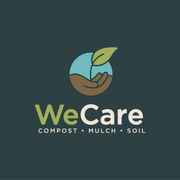
If you supply or distribute soil to landscapers, builders, developers, and businesses, organic planting soil confers benefits that nonorganics do not. If your clients want healthier plants and landscapes that retain water and retard erosion, they should adopt organic soil. Here’s what they need to know about the advantages of going organic.
4 Advantages of Organic Planting Soil
1. Sustainability
Organic planting soil is environmentally friendly. It contains only all-natural ingredients that add nutrients to the earth, not chemicals and contaminants. Improving soil with organic matter is a more sustainable practice than removing soil and replacing it.
2. Prevent Diseases & Pests
The nutrients in organic soil, such as nitrogen, phosphorus, and potassium, strengthen a plant’s cell walls and makes them more resistant to diseases. Foliage with a natural ability to ward off pests and disease don’t require the application of pesticides.
 3. Keep Plants Hydrated
3. Keep Plants Hydrated
Organic soil contains decaying plant matter that improves water retention. Reserved moisture in organic soils helps plants stay hydrated. With organic planting soil, you won’t have to water greenery and trees as often as those planted in nonorganic soil.
4. Particle Balance
Organic planting soil, which consists of equal parts sand, clay, and silt, is an excellent soil amendment. When added to sandy soils in warm zones or to acidic soils in rainy climates, it balances the earth’s chemistry to make soil more favorable for growing grasses, trees, shrubs, and flowers.
If you supply organic soil to your customers to help them nourish gardens and landscapes, turn to WeCare. For over 20 years, they’ve been providing planting soil, engineered soils, biosoil, and compost to clients across New York, Pennsylvania, and New Jersey. Call (315) 575-4595 to talk to a sales representative, or visit them online to learn more about their innovative soils. For news and updates, follow them on Facebook.
About the Business
Have a question? Ask the experts!
Send your question

